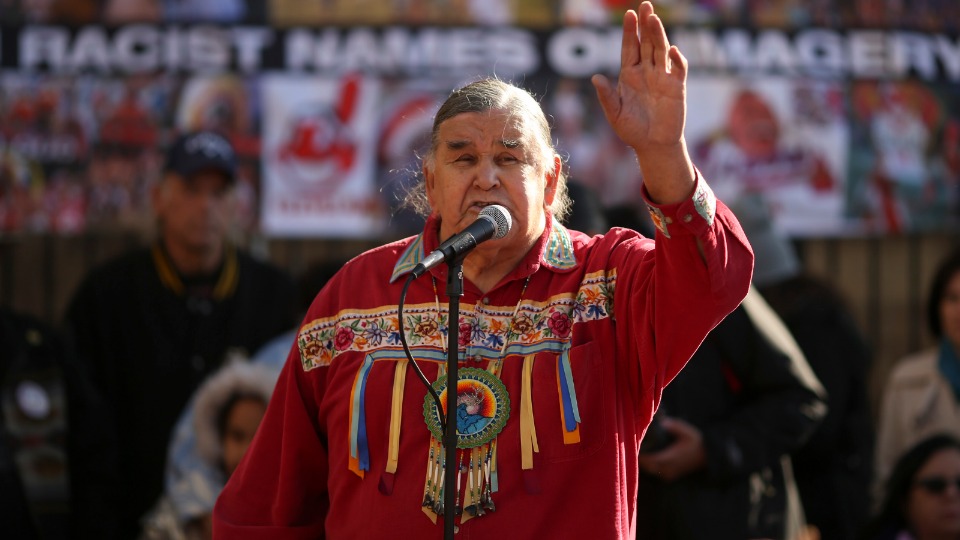
An intrepid warrior, a tireless advocate for Indigenous rights, the last of the Old Guard of the American Indian Movement, a peerless paladin for the cause of Native liberation, fearless fighter confronting racism on the frontlines: Clyde Bellecourt was all of these and more.
Bellecourt passed away on Tuesday, January 11, at age 85 at his home in Minneapolis, Minn.

His was a life filled with triumph and tragedy for the “Indigenous cause.” He was Anishinaabe (Ojibwe), born and raised on the land of the White Earth Nation in northern Minnesota on May 8, 1936, the seventh of twelve children. At an early age, he was imbued with a sense of rage at the historic mistreatment and oppression of Native Americans in general and his parents in particular.
This legacy impelled him to a life of activism fighting the centuries of oppression of Indigenous people. In 1968, he was one of the co-founders of the American Indian Movement (AIM), along with Eddie Benton-Banai, Russell Means, Dennis Banks, and others. In those days, AIM was formed to combat police brutality against Native residents in Minneapolis.
This writer first met Clyde and his brother, Vernon, at an AIM rally in the late 1970s. Those were turbulent times, when a new era of Indigenous resistance was sweeping the country.
Clyde’s Native name was Nee-gon-way-we-dun, which in English means “Thunder Before the Storm.” Considering what he did in his life, I would say he was also the Thunder and the Storm.

Traditionally, he was also a member of the Three Fires Society, the Gathering of the Sacred Pipes, and a Sun Dancer. Clyde emphasized the importance of maintaining traditional culture for Indigenous people.
His life was a crucible of activism that included the Liberation of Wounded Knee in 1973, the Trail of Broken Treaties, the Longest Walk, the founding of the Heart of Earth Survival Schools, the founding of the American Indian Opportunities Industrialization Center, campaigns for fair housing, the providing of legal services for the Indigenous, advocacy of education for Native people, fighting for environmental justice and opposition to cultural appropriation, and the fight against Indian mascots in sports.
Clyde founded or helped create the Peacemaker Center for Indian Youth, the Women of Nations Eagle’s Nest Shelter, the International Treaty Council, and the National Coalition on Racism in Sports and the Media. He was also at Standing Rock in 2016. He was involved on so many battlefronts of the Indigenous struggle, in addition to being an advocate of human rights worldwide. Clyde was truly a powerhouse of struggle against oppression.

Accolades in his honor have poured in from around the globe.
Among the tributes to Clyde was that of Indigenous radio talk show host Jay Winter Nightwolf, Cherokee, in his program on Sunday evening, Jan. 16, entitled, “Honoring and Celebrating the Life and Times of American Indian Leader and Founder of AIM, Clyde Bellecourt.” Among the guests on the program was Spike Moss, an African American civil rights and human rights fighter, a best friend of Clyde’s who had known him since 1966. Moss was also a speaker at Clyde’s wake Thursday in Minneapolis.
On Sunday evening, Moss spoke of Clyde’s courage and determination. “He was always brave and bold and believed in fighting for what is right no matter what they try to do to you,” Moss said.
This writer was also a guest on the program and spoke of the indelible legacy Clyde has left us that we must carry on.
A wake service was held Friday evening at the White Earth Indian Reservation, and Saturday morning a traditional Ojibwe funeral service was held, followed by the burial.
A cruel irony of his passing is that George Floyd was barbarically murdered by Minneapolis police 53 years after Clyde founded AIM to stop police brutality against Indigenous people in the very same city. This racist murder took place just a few block from Clyde’s home.
Clyde’s voice and legacy shall continue to resonate against racism and the oppression of humanity throughout the world.



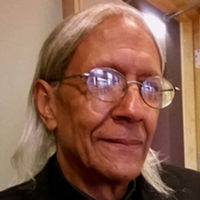
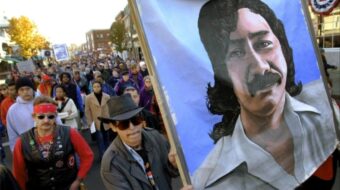
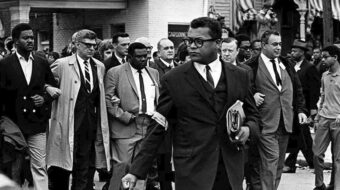
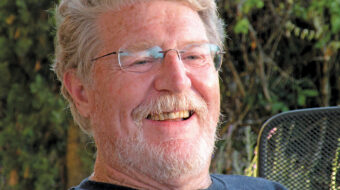





Comments